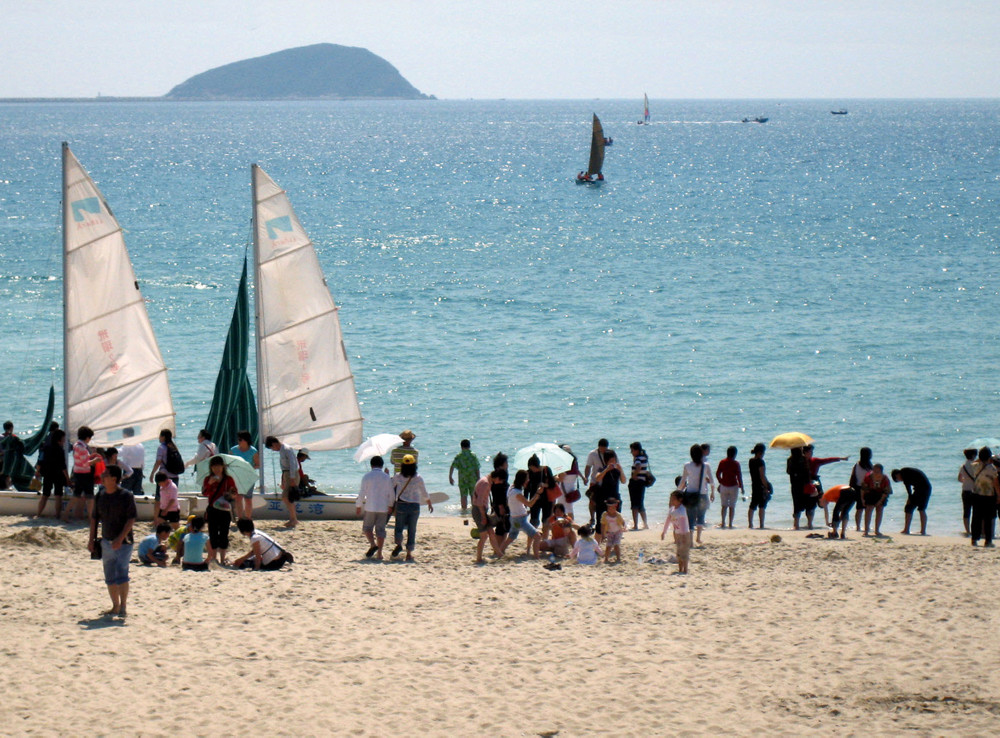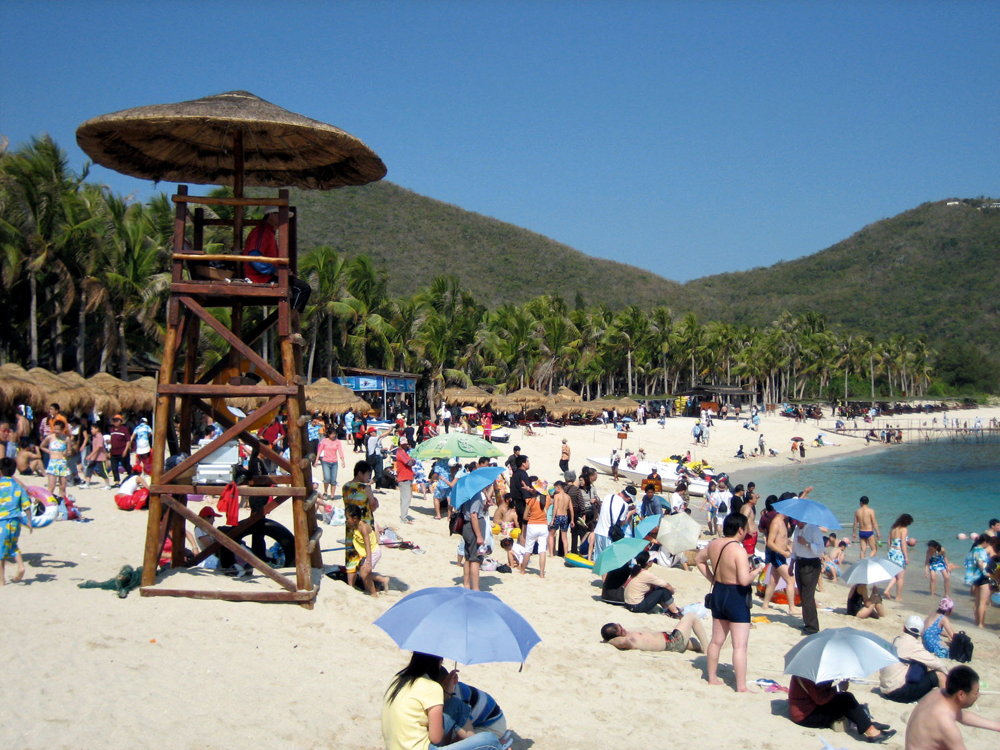Chinese Holiday-makers
Western people’s individualistic mentality is traceable in every single element of their life, even in the way they holiday. Although we do have nationwide bank holidays, a proper vacation is when you plan it on your own and enjoy it at a desired time in the year. The Chinese cannot choose the time of their vacation. Their days off are specified by the central government and apply to the whole country of 1.3 billion people. The major holidays are the lunar New Year (春节 Chūn Jié) with about three days off, about the same for National Day (国庆节 Guóqìng Jié) on 1 October and Labour Day (劳动节 Láodòng Jié) on 1 May as well as several other shorter holidays of one or two days off. It is ubiquitous to swap working days around the major holidays with weekends to make a longer holiday; this way the Chinese enjoy about seven days off for New Year and National Day.
Having the world’s most populous country launch their travels at the same time presents a huge challenge for the transportation system. Millions of migrant workers and students return home, and travel groups flock to get the affordable train tickets. It is estimated that during the 40 days of the Chinese New Year in 2007, the trains transported “an average of 3.9 million passengers a day” (Wikipedia).
To get an idea of the growth of holiday- making in China, compare these numbers with 2013: “Chinese railways carried 65 million passengers between 28 September and 5 October, a record high over the same period in history. On Tuesday, de facto National Day, the total number of railway passengers hit 10.33 million, breaching the 10-million mark for the first time. An average of eight million people travel by train each day from 30 September to 4 October (China Railway Corporation via Xinhua).
During the holidays in China, train tickets are in short supply and individuals count themselves lucky if they can get a train ticket a week before their journey. Nowadays, more Chinese people can afford a car or two, so the pressure has moved towards the highways. Traffic jams of several kilometres are not uncommon during holidays.

I have attended tourist fairs where travel agents promote their holiday packages and these venues were absolutely thronged. If an egg were thrown, it was bound to fall on somebody’s head. People start arriving five hours before the doors open, which is well before sunrise. The great majority of them are elderly people and pensioners eager to discover new places they have not been able to visit before. The Chinese prefer to travel with organised groups for very practical reasons: it is cheaper, as the travel agents can negotiate better flight and hotel prices. Chinese travel agents offer a range of holiday packages: DIY trips with booking of plane tickets or tickets plus hotel reservations. There are also guided trips of which there are two kinds: the cheaper ones include obligatory visits to production companies and shops with a marketing purpose and normal guided tours without merchandising.
My first experience as a holiday-maker in China was to celebrate the lunar New Year in 2007 by a guided trip to the ‘Florida of China’: the tropical Hainan Island (海南岛). It is the venue of many local and international festivals, carnivals, competitions and shows – 55 of them between January and October 2013. The coastal tourist town of Sanya (三亚), Hainan (海南) hosted the 2011 BRIC summit – the economic union of Brazil, Russia, India and China – which became BRICS after South Africa joined.

People in Western countries associate a tropical island with a week or ten days of sunbathing, swimming and scuba-diving. The Chinese do not have the tradition of spending their precious days off at the same place lying under the sun trying to get this amber suntan that we are used to boasting about. Firstly, in the Far East– China, Korea and Japan – the white face is a symbol of beauty, so on a sunny day in China, it is normal to see women with visors completely covering their faces. Secondly, as mentioned before, the Chinese have no summer vacation. Their longest holidays are in February and October and they are much shorter than the summer holiday of a European.
In Sanya, our group was ushered to the tropical beach just as you would go to see an attraction. During the half an hour allocated for visiting the beach everyone was walking on the sand in complete attire. We just stood there, walked around the waterfront, trying to stay dry and filling our shoes with sand. On the next day we did take our share of sunbathing at Sanya beach, though. However there were still people in trousers, formal shoes and long-sleeved shirts hiding under umbrellas from the February sun.
Nowadays more Chinese people choose to spend their holidays abroad – mostly in Asian countries – but European and North American destinations are becoming increasingly popular. The Chinese are welcomed and desired tourists: compare China’s 14.3% record annual increase of millionaires with 12% in Switzerland and 6.7% in Germany, which is the country with most millionaires in the EU.
Chinese people are ardent travellers. They holiday differently from the West. They travel, they learn, they are restless and always on the move. The Chinese people yearn to learn as much about the world for as short a time as possible. Someone once said about China: “Let her sleep for when she wakes she’ll shake the world”, and so she did. Living in China I cannot help but be amazed by the prestissimo of development in every area. Their traditions in holidaying are certainly one of the keys to their success.
By Stefan Penchev

 Share on Facebook
Share on Facebook Share on Twitter
Share on Twitter Share on LinkedIn
Share on LinkedIn